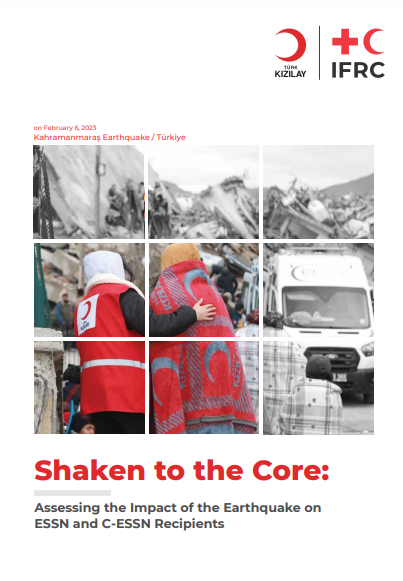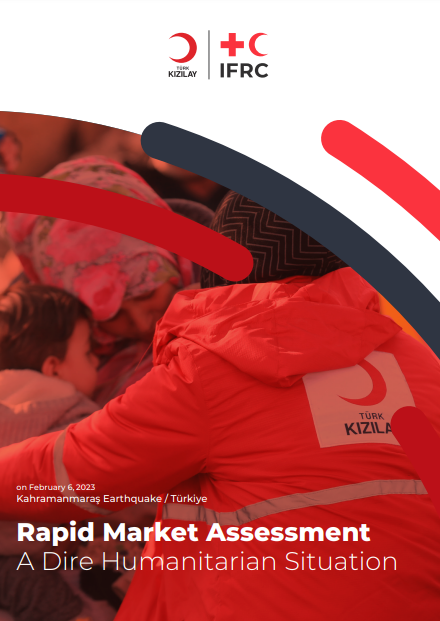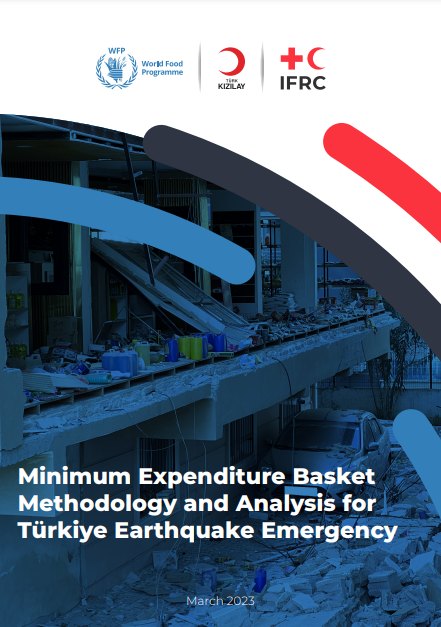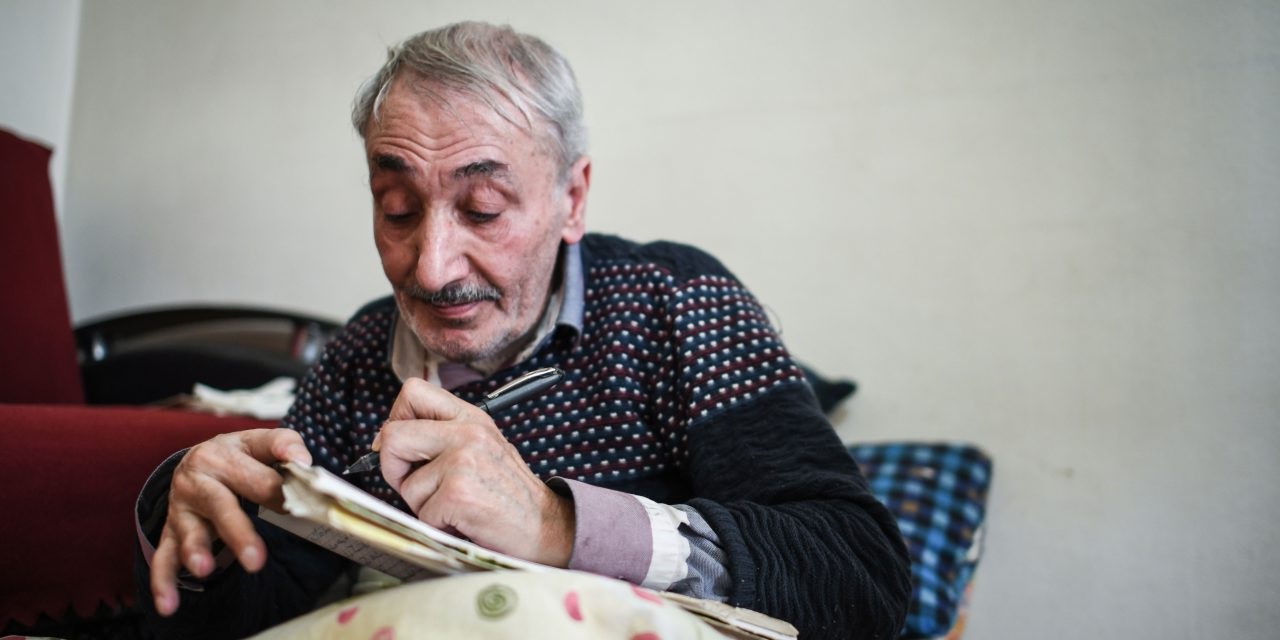Country pages
Cash in Türkiye
Learning from the Turkish Red Crescent’s comprehensive humanitarian cash programmes in Türkiye
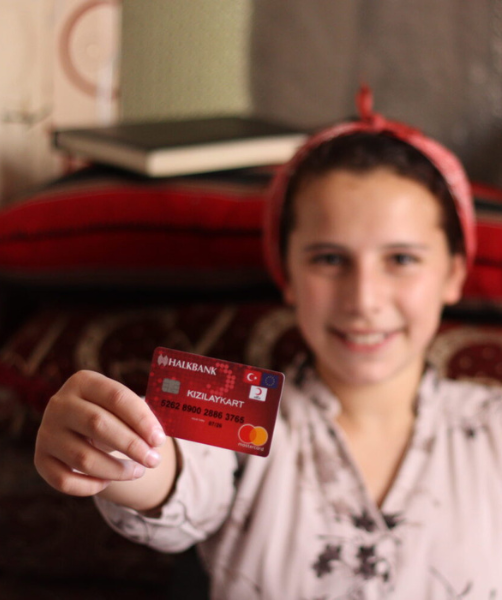
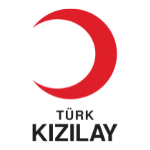
The Turkish Red Crescent (Türk Kızılay) has been at the forefront of large-scale humanitarian cash programming for the last decade. Its sector-leading Kızılaykart Platform enables simultaneous implementation of multiple cash assistance programmes, through the ‘Kızılaykart’ (debit card).
A series of cash assistance programmes are currently supporting vulnerable adults and children living under Temporary Protection, International Protection (applicant status and status holder) or Humanitarian Residence Permit in Türkiye, along with those affected by the 2023 Kahramanmaraş earthquakes.
Find further information and resources on the Kızılaykart cash-based assistance programmes here: (EN) (TR)
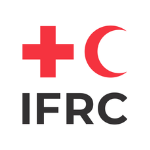
From 2020 to 2023 the Turkish Red Crescent and the IFRC, with funding from the European Union, implemented the Emergency Social Safety Net (ESSN) – which was the largest humanitarian cash programme in the world.
Via the ESSN, more than 1.5 million refugees living in Türkiye received regular monthly cash assistance, enabling people to decide for themselves how to cover their essential needs such as food, rent, medicine, transport and other bills. In 2023 the programme was handed over to the Turkish Ministry of Family and Social Services, who continue implementing the now renamed Social Safety Net (SSN) programme in partnership with the Turkish Red Crescent.
Click here to access the IFRC Go Platform Dashboard for Turkiye
ESSN Learning Exchange
In December 2023 the IFRC and Türk Kızılay organised an Emergency Social Safety Net (ESSN) Learning Exchange event, with the support of the Cash Hub. The event, held in-person in Ankara and attended by remote participants online, was a part of proceedings marking the formal conclusion and handover of the ESSN.
The overall aim of the Learning Exchange was to use experience from ESSN implementation to contribute to the broader body of knowledge on humanitarian emergency cash and social protection programming.
Key sessions looked at the ESSN journey since its inception in 2016; community engagement and accountability (CEA) in large-scale CVA programming; innovative uses of data supporting ESSN design and implementation; programme adaptability and shock responsiveness; the value of positive campaigning via lessons from the ESSN’s unique story telling project; and at enablers for the successful implementation of a large-scale nexus programme.
Find out more here
ESSN Learning Hub: all the key resources produced by Türk Kızılay and the IFRC
ESSN monthly reports: key programmatic highlights
Kahramanmaraş Earthquake response: Find the latest resources
After the earthquake: Rapid Market Mapping and Minimum Expenditure Basket (MEB) analysis

3 June 2020
Turkey Impact of COVID-19: On refugee populations benefitting from the Emergency Social Safety Net (ESSP) Programme
Type:
LearningOrganization:
ECHO, IFRC, Turkish Red Crescent (Türk Kızılay)The purpose of the survey was to gather data on the economic and social impact of COVID-19 on the lives of refugees benefiting from the ESSN programme to inform future implementation. The rapid assessment was conducted from 8-14 April 2020 and included 468 households. Information was collected on the income and employment situation, access to basic services and ability to use the Kızılaykart.
15 May 2020
Impact of covid-19 on refugee populations benefitting from the Emergency Social Safety Net (ESSN) programme: Assessment report
Type:
ReportOrganization:
Turkish Red Crescent (Türk Kızılay)The assessment was conducted with an aim of gathering data on the economic and social impact of COVID-19 on the lives of refugees benefitting from the ESSN programme, to inform future implementation. The rapid assessment was conducted from 8-14 April 2020 and included 468 households. Information was collected on the income and employment situation, access to basic services and ability to use the Kızılaykart.
1 April 2020
Emergency Social Safety Net (ESSN) – monthly report April 2020 (Issue n.1)
Type:
InfographicOrganization:
Turkish Red Crescent (Türk Kızılay)Short overview of programmatic highlights and achievements, as well as information on the use of cash and recipients in Turkey where the ESSN programme has been supporting about 1.7 million refugees a month.
23 February 2020
ESSN Mid-Term Review 2018/2019
Type:
EvaluationOrganization:
Development Analytics, Oxford Policy Management, Turkish Red Crescent (Türk Kızılay), WFPThis review focuses on four programmatic developments, specifically: (1) the SASF discretionary allowance, (2) outreach teams, (3) protection referrals and (4) the severe disability allowance. This review also examines the impact of the 2018 economic slowdown in Turkey on ESSN beneficiaries (5).
21 February 2020
How the EU and Turkey can promote self-reliance for Syrian refugees through agricultural trade
Type:
ResearchOrganization:
Brookings, TENTThe report is divided into three sections: 1) a discussion of the current situation facing Syrian refugees in Turkey and the efforts made to provide better employment opportunities for them; 2) the challenges and opportunities with respect to accessing employment, with an emphasis on the agricultural sector; 3) a set of policy recommendations developed through interviews and discussions with academics, civil society representatives, Turkish national and local government officials, and representatives of international agencies, as well as officials from the European Commission and Parliament.
22 January 2020
Turkey Market Bulletin – Issue 13 (Q1 – 2020)
Type:
AnnouncementOrganization:
WFPQuarterly bulletin with information on the macro-economic situation in Turkey, food prices, energy prices, MEB, and an overview of the implications of the COViD-19 pandemic.
Page 5 of 8


